In today’s rapidly evolving world, we find ourselves grappling with a myriad of challenges that require immediate attention and innovative solutions. From the looming threat of climate change to the urgent need for accessible healthcare, conventional business frameworks often fail to address these pressing issues.
Here, startups are emerging as pivotal players in rewriting the rules of the game. These nimble entities possess not just the technology but also the audacity to think beyond traditional boundaries, offering new paradigms that are shaking up industries and forcing us all to rethink how we approach global challenges.
Startups are like David to the Goliath, the traditional business model. Their agility, disruptive approach, and fresh perspectives equip them to tackle problems in ways that many established companies cannot. Their existence is not just to serve a niche market or to turn a quick profit; many startups today have loftier ambitions. They aim to create a tangible impact on the world, leveraging cutting-edge technologies like Artificial Intelligence, Blockchain, and Biotech to propel society toward a more equitable and sustainable future.
As we stand at this critical juncture where existential threats require immediate action, the role of startups becomes even more central to the conversation. Gone are the days when profit was the only measure of success; we are entering an era where businesses, particularly startups, are evaluated based on the long-term value they offer humanity. This blog aims to dive deep into the transformative role of startups in this new landscape, explore the wave of innovation they are riding, and inspire you to be part of this movement that rethinks and reshapes how we address global challenges.
So, let’s explore what it truly means for startups to lead the way in innovation while solving some of the most urgent problems we face today.
Daftar Isi
ToggleThe Current Global Landscape
In the current global landscape, we face diverse immediate and complex challenges. Climate change is no longer a distant threat but a reality, manifesting in unprecedented wildfires, hurricanes, and rising sea levels. Meanwhile, poverty continues to affect billions, creating a cycle of disadvantage that’s difficult to break. Our healthcare systems are often ill-equipped to handle large-scale outbreaks, as we’ve seen in the COVID-19 pandemic, and even in more stable times, they struggle to provide equitable access to care. Add to this the technological divide that exacerbates educational and social inequalities, and we find ourselves in a world that is crying out for transformative solutions.
Traditional businesses and economic models have attempted to tackle these issues but have often done so within the limits of a profit-first mindset. While corporate social responsibility initiatives and sustainable practices have gained traction in recent years, they frequently serve as supplementary to the primary goal of revenue generation. Moreover, large enterprises often find it challenging to pivot quickly or take bold risks, constrained by layers of bureaucracy and obligations to shareholders.
We have reached a point where incremental changes or temporary solutions are insufficient. The scale and urgency of our challenges demand innovative approaches that can disrupt the status quo and offer scalable, sustainable solutions. Enter startups: these agile entities are equipped to act fast, take calculated risks, and pioneer new models that are not just profitable but also inherently impactful.
The stage is set for a revolution, a wave of innovation that goes beyond traditional business metrics to include social impact as a measure of success. It’s a challenging yet exciting time to rethink how we can solve global challenges through new business paradigms. This post will explore how startups are at the forefront of this sea change, pushing boundaries and setting new standards for what businesses can and should do.
The Role of Startups in Addressing Global Challenges
The role of startups in addressing global challenges cannot be understated, as they bring unique attributes to the table that make them well-suited for tackling complex issues. The agility and flexibility inherent in startup culture allow quick decision-making and implementation, enabling them to respond to problems that require urgent solutions swiftly. Moreover, startups often challenge traditional thinking and are unafraid to disrupt established industries, offering fresh perspectives and new paradigms that can revolutionize how we approach global challenges.
Case Studies of Startups Making an Impact
Eco-friendly Tech Solutions: Take, for instance, the wave of cleantech startups focused on reducing the carbon footprint of various industries. Companies like Beyond Meat and Impossible Foods have made strides in revolutionizing food consumption habits, reducing the demand for livestock farming—a major contributor to greenhouse gas emissions. Solar and wind energy startups are democratizing access to sustainable energy, while others are working on innovations in waste management, water purification, and even air quality monitoring.
Healthcare Innovations: In the realm of healthcare, startups are revolutionizing telemedicine, drug discovery, and personalized treatments. Companies like Teladoc are making healthcare accessible to remote and underserved populations, while biotech startups are pushing the boundaries of what’s possible in treating chronic and terminal illnesses. Mobile health apps provide real-time information and advice, empowering individuals to take more proactive roles in their well-being.
Unique Advantages of Startups
Startups have the advantage of being mission-driven from the ground up. Unlike established companies that may add corporate social responsibility as an afterthought, many startups build their business models around a social mission. This purpose-driven approach enables them to attract both talent and investment that align with their goals, providing them with the necessary resources to scale effectively.
Another noteworthy aspect is the culture of collaboration that startups often cultivate. Rather than competing head-on with established industries, many startups focus on collaborative efforts that combine their innovative capabilities with the scale and reach of larger organizations. Partnerships with NGOs, government agencies, and even traditional businesses are becoming more common as these entities recognize startups’ value regarding innovation and agility.
In a world where traditional approaches are proving insufficient to tackle the massive, intertwined challenges we face, startups offer a glimmer of hope. Their disruptive technologies, agile methodologies, and collaborative ethos equip them to drive significant change. These smaller entities are setting new benchmarks for how businesses can contribute to resolving global issues, proving that with the right mix of innovation, dedication, and strategic collaboration, it’s possible to redefine success to include not just profit but also positive, lasting impact.
Conclusion
As we’ve explored throughout this article, startups are not merely commercial enterprises focused on profitability; they have evolved to become crucibles of innovation and social impact. Their agility, technological edge, and ability to pivot make them more capable of confronting the intricate and urgent challenges plaguing our modern world. From revolutionizing healthcare to combating climate change, startups bring a fresh perspective untethered by the bureaucratic limitations that often stymie larger organizations.
What’s remarkable about the startup landscape is its dynamic nature—it’s an ever-changing tapestry of ideas, ambitions, and missions. Startups represent business ventures and a collective striving for a better world. They set the stage for the next great leap in societal evolution, which could redefine how we tackle global challenges and measure the true impact of business on human lives.
So, what can you do to participate in this transformative wave? Whether you are an entrepreneur looking for the next impactful project, an investor searching for ventures that offer financial and societal returns, or a professional considering a career switch into something more mission-driven, the startup ecosystem needs you. Your skills, capital, and, most importantly, your commitment can help drive this change.



